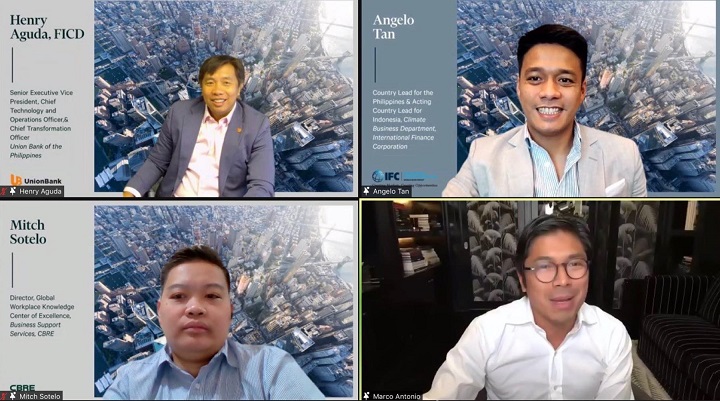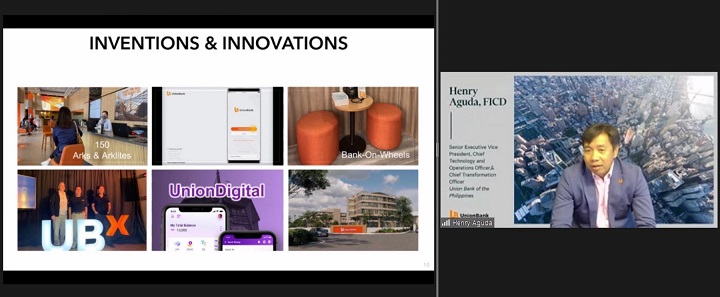As companies commit to sustainability, diversity and balance are among the most important focus areas that they must prioritize. This was highlighted by UnionBank during the recently concluded CBRE Connect Series’ Perspective in Leadership Webinar: Navigating through Challenges & Uncertainty.
Panelist Henry R. Aguda, UnionBank Senior Executive Vice President, Chief Technology and Operations Officer, and Chief Transformation Officer, shared insights on the challenges and rewards of leadership in a fast-growing industry; and the significance of innovation, reinvention, and resilience amid crises.

Aguda related that for UnionBank, digital transformation is not an end goal, but more of a means for people within the organization to be able to connect with each other, and ultimately, with the Bank’s customers and stakeholders. More so, the Bank considers diversity as key to establishing a stronger connection, over and above being a necessary component of its environmental, social, and governance (ESG) efforts.
“When you talk about connection, it’s all about people. UnionBank has been known as a digital bank but actually, we’re more of a people organization, and diversity is big on our agenda. It’s something that we feel is also a key part of ESG. But beyond ESG, we believe in diversity in an organization.”
According to Aguda, the diverseness is crucial to UnionBank’s digital transformation as it allows ideas to flow from collaborators with various skill sets and experiences, enabling more innovation. He added that people’s respect for each other’s ideas allows individuals to be more connected.
“And when you have that (respect), connection comes easy,” Aguda said. “It’s important because if an organization is not connected to one another, it will never be engaged to its customers and stakeholders. So, that’s how we do it. We don’t put digital as the primary goal. We use digital as the enabler. We use digital means to connect with one another.”

Aguda also underscored the importance of leaders being able to juggle both the needs of the company and its people.
“To us, metrics on leadership are more about balance. Like most companies, we do have a balanced scorecard, but we always ask ourselves, ‘Are we still seeing too much on the profit side, or are we building too much on the feel good side? Would you rather have a very profitable but toxic company, or not too profitable but people are so happy and healthy?'”
At the end of the day, it comes to balancing people and profit, an integral part of sustainability.
“You can be profitable in the short term, but if you don’t take care of your employees, the long-term viability of the enterprise will not be assured. But then, if you don’t have profit in the short term, you won’t reach your long-term targets, “Aguda said.

